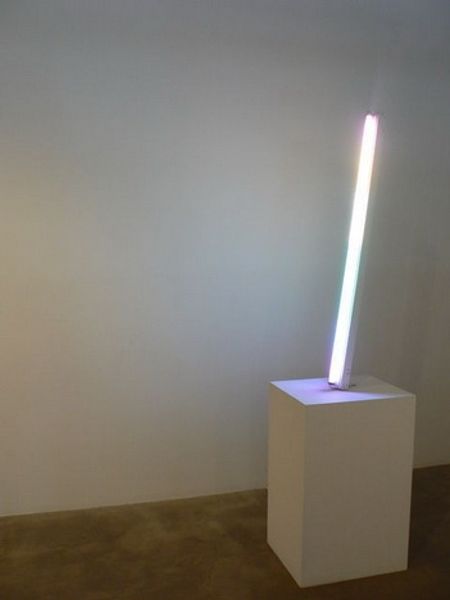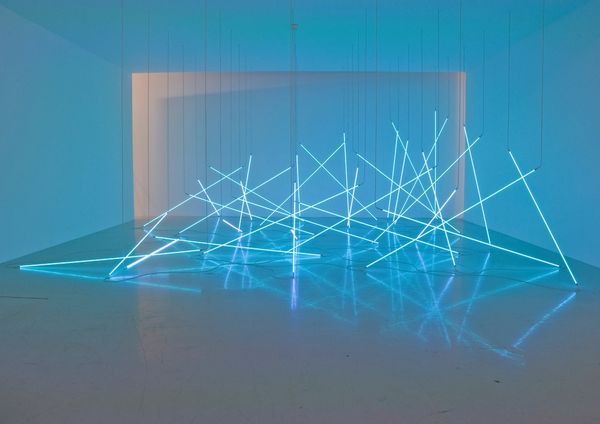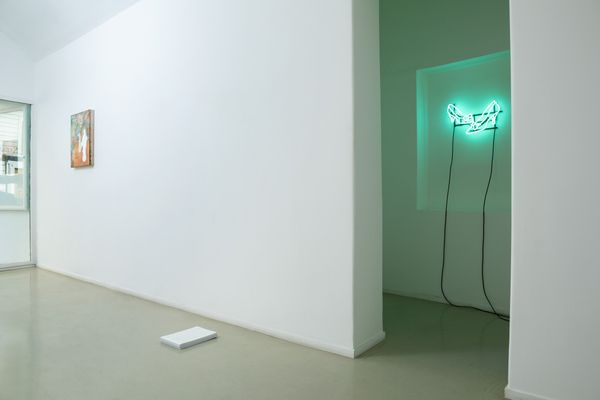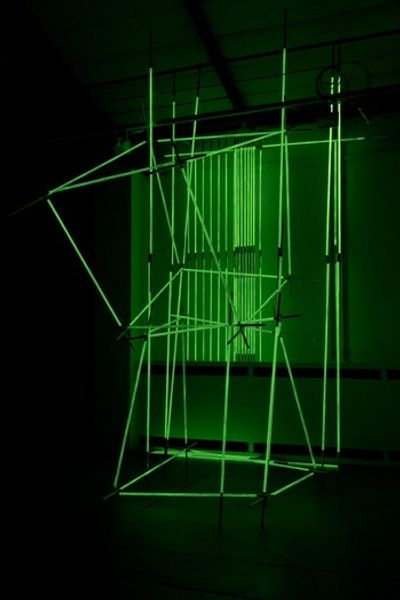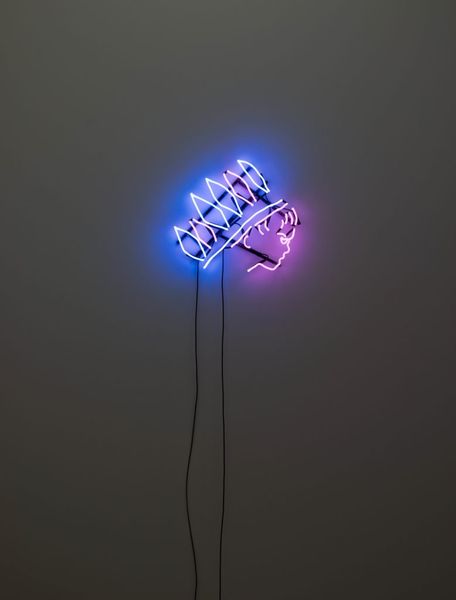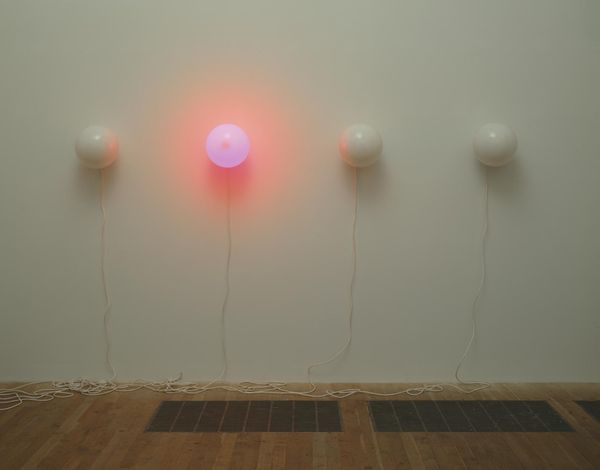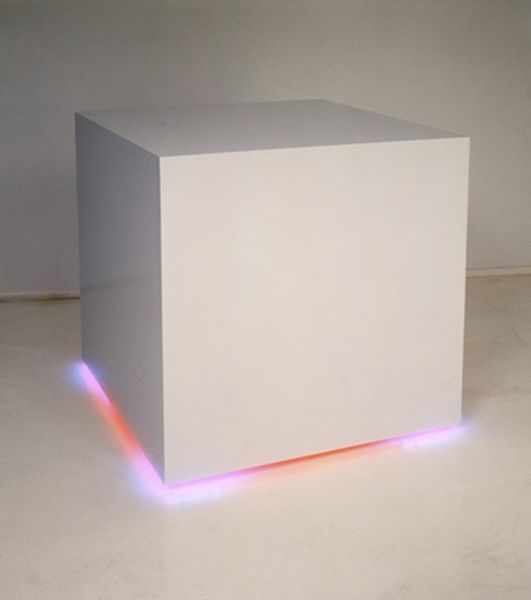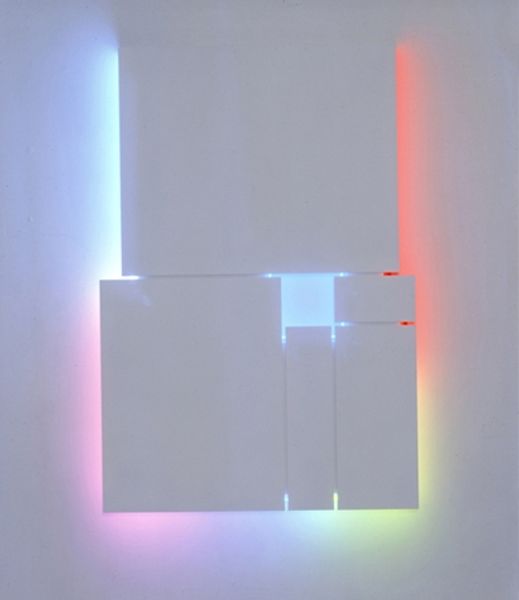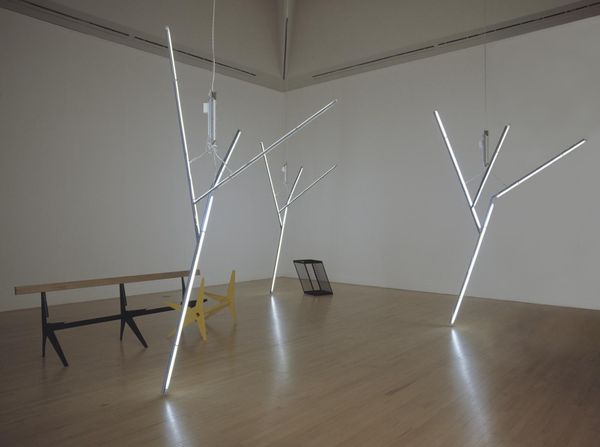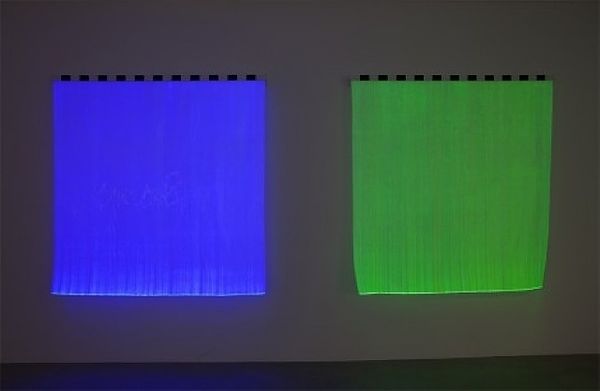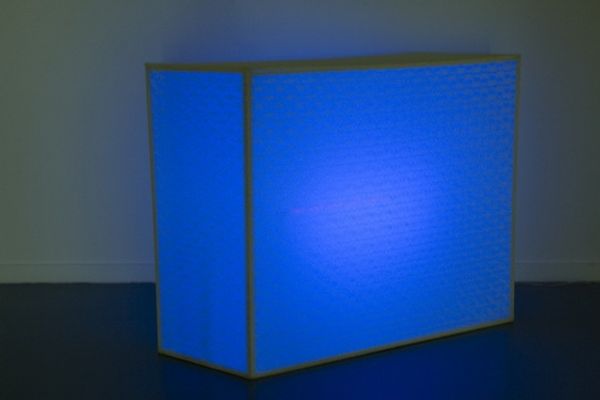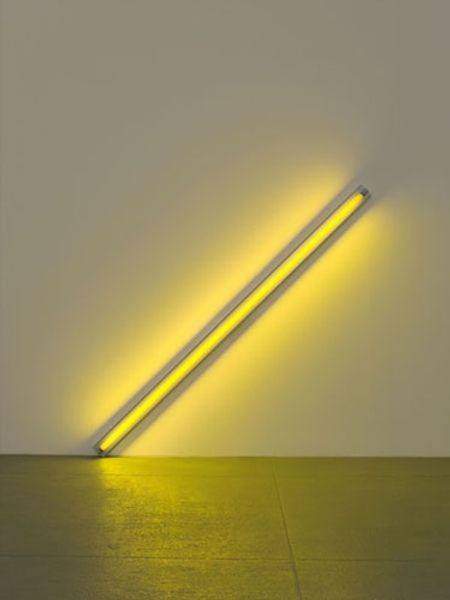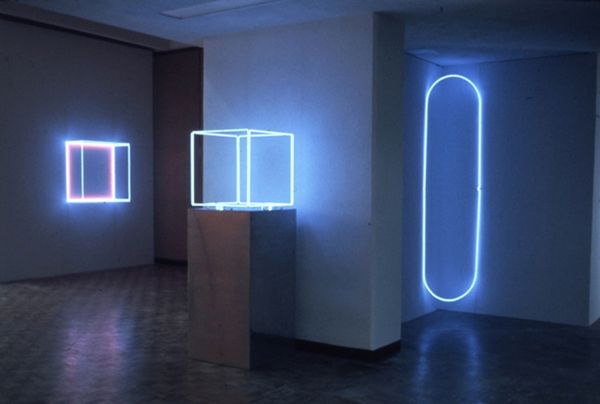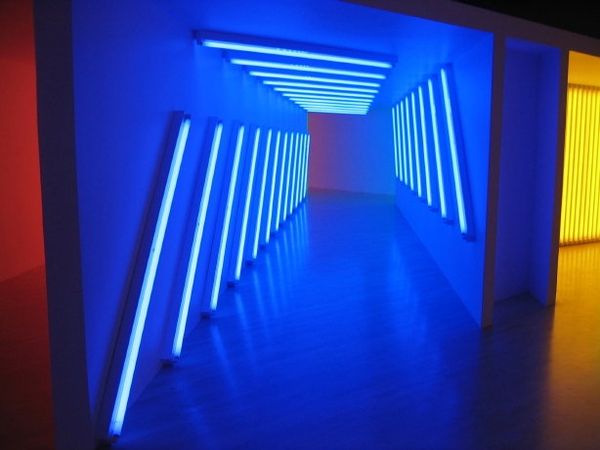
sculpture, installation-art
#
light-and-space
#
low-poly
#
minimalism
#
ethereal
#
light trace
#
minimal geometric
#
minimal bright light
#
florescent
#
electric colours
#
geometric
#
chromatic
#
sculpture
#
bright
#
geometric-abstraction
#
installation-art
#
abstraction
#
geometric figure
Copyright: Francois Morellet,Fair Use
Editor: This striking installation, "Néon dans l’espace," or "Neon in Space," by François Morellet, dating from 1963, uses neon lighting to create geometric forms. Its bright, almost ethereal quality makes me wonder—what exactly is it communicating? What symbols are at play here? Curator: I find this piece intriguing because of how it distills geometry into pure, radiant form. It's more than just minimalist sculpture; the neon itself is loaded. Think about neon—it signifies modernity, the city at night, a kind of electric promise, especially prominent in 1960s consumer culture. Does the starkness of its geometric forms speak to the cool, detached aesthetic of the era? Editor: I see what you mean. There’s a contrast there. The harshness of the lines mixed with that glow almost feels retro-futuristic. The 1960s saw the peak of this Space Age fascination. Does the use of geometric shapes link to other symbols or values? Curator: Geometric forms like squares and triangles often stand for stability, order, and even intellectual pursuits. But in this dynamic arrangement, that rigidness is subverted. It seems as though these perfect shapes are imploding or exploding, implying that society, too, might be coming undone. In your mind, is there a sense of optimism or impending threat within the sculpture? Editor: That is interesting. It definitely makes me think of how abstraction can symbolize more than meets the eye; how shapes can carry just as much cultural weight as the representation of real people or things. Curator: Precisely. These elementary shapes can still hold culturally significant meanings that reflect on both past hopes and present fears. That makes this simple assemblage strangely evocative, even now.
Comments
No comments
Be the first to comment and join the conversation on the ultimate creative platform.
